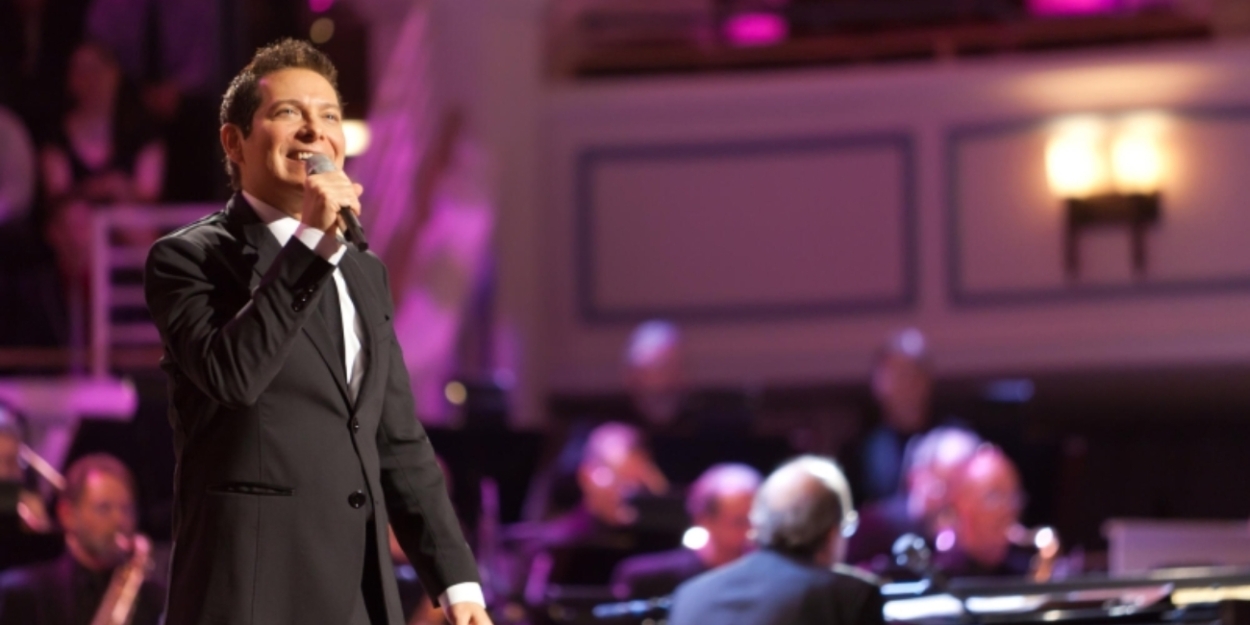Review: STANDARD TIME WITH MICHAEL FEINSTEIN Honors NYC Songs at Carnegie Hall
Feinstein is a masterful guide through the history of American Songbook standards

[header photo credit: Stephen Mosher]
The beloved concert series STANDARD TIME WITH Michael Feinstein continued on February 28th at Carnegie Hall’s intimate Zankel Hall stage. The show opened with a jazzy rendition of “Take the A Train” played by Feinstein’s three-piece band, with music director Tedd Firth on the piano, Mark McLean on drums and David Finck on bass. The fluid, energized piece played impeccably was the perfect opening to this installation of Standard Time, which celebrated American Songbook classics about New York City. Feinstein entered the stage singing a New York City medley, including Sondheim’s “Another Hundred People” and Comden, Green and Bernstein’s “New York, New York” from On the Town. Feinstein acknowledged that there are too many NYC classics to count – but he wanted to do his best to put together a wide enough mix of songs that no one would complain that he didn’t do their very favorite one, but still putting in some obscurer relics. He succeeded indeed, hitting mega-hits like a silky smooth version of Rodgers and Hart’s “Manhattan,” as well as a few new-to-me songs like “Top of the Town” from the 1937 movie musical of the same name and “Anything Can Happen in New York” from the 1941 movie musical Babes on Broadway (music by Burton Lane and lyrics by Yip Harburg). Feinstein is the perfect person to guide an audience through standards, with his natural ease as a performer and his own personal history – the man is dripping with stories about Broadway legends, which he tossed off in between songs. Towards the end of the show, he acknowledged the one New York City song that he’s very tired of singing but felt pressured to include, and mentioned that he asked Betty Comden once if it bothered her that there was another famous “New York, New York” song, and she snapped “of course it does.” (He acknowledged, of course, that technically the songs don’t have the same name – the later Kander & Ebb song is called “(Theme From) New York, New York.”) Then he launched into a very funny parody lyric about how much he hated singing it: “I’ve simply got to quit / singing that piece of … sheet music / I will not sing / New York, New York.”
The entire evening was incredibly musically impressive. At several points, Firth took a break and Feinstein sat down at the piano to accompany himself, as fluidly as if the piano was simply an extension of his mellifluous voice. One distinctive thing Firth did was weaving chords from other songs into what he was playing, such as sneaking the melody of “Another Hundred People” into other songs in the NYC medley, making the thread of the concert feel as if one song was smoothly flowing into another. At one point, Feinstein introduced “Broadway Baby” by joking, “I don’t need to tell you what this next one is, and if you don’t know it, you’re in the wrong place,” to appreciative laughter. Then he stopped, thought about it for a second, and corrected himself, saying that he didn’t want this show to only be for people already familiar with the old standards, and that if you weren’t, he hoped his show could be a good introduction point. I’d agree that I can’t imagine a better intro to the American Songbook than hearing it from Feinstein and his band, the three super-talented musicians. Whether you’re already familiar with everything and just want a chance to hear these songs performed live by a true master, or you’re looking to dive deeper and learn more, Feinstein is marvelous to watch.
The Standard Time will be back later this month on March 27th with the world premiere of Carnegie Hall’s big band and a special show honoring Tony Bennett, one of Feinstein’s close friends. Tickets to that show are available here.
Comments
Videos

